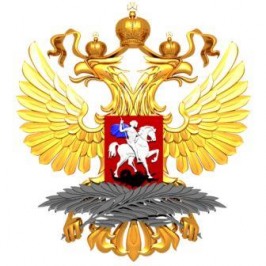We have studied the EU Annual Report on Human Rights and Democracy in the World in 2016. This document, on the whole, resembles a bureaucratic accounting of the EU's multifaceted and vigorous human rights efforts with respect to third countries. The broad range of topics the EU has been trying to oversee abroad is characterised by growing ambition: from the fight against radicalism and terrorism to the task of decriminalising homosexual relations worldwide.
The country-specific chapters of the report vary, seeking to cast flattering light on existing achievements while quietly acknowledging flaws, and contain overly harsh assessments of the general human rights situation and direct attacks against the national governments of sovereign states.
We regret to note that, unfortunately, Brussels so far has failed to rid itself of Russophobic stereotypes. The chapter devoted to Russia was prepared in predetermined negative tone with no regard for repeated explanations given by Russia (publicly and at international human rights platforms) on concrete topics related to the protection of human rights in our country.
Here is a typical example: despite asserting (with reference to the OSCE ODIHR) the transparency of the 2016 State Duma elections in Russia, our EU partners, nevertheless, stubbornly refer in their report to a generally negative electoral situation, permitting themselves to groundlessly speculate on an alleged clampdown on civil society.
It is also telling that responsibility for the deteriorating human rights situation in Ukraine is being shifted onto Russia. In our opinion, it is unacceptable for a report that claims to be objective to continue to blatantly conceal the large-scale and flagrant human rights violations in Ukraine , with no calls for changes, including with regard to the investigations – suspended with the EU's tacit consent and connivance (the report being further proof of this) – into the deadly fire at the House of Trade Unions in Odessa, which led to numerous casualties, or the “sniper case” during the Maidan in Kiev.
Against this background, which vividly illustrates the degree of the “objectivity” and “impartiality” of the EU human rights report, we understand the EU's loyalty to its “strategic partner”, the United States, to which the report devotes just one and a half page of timid complaints unrelated to the major human rights problems gripping that country.
The report's foreword notes that positive trends (in the sphere of human rights and democracy) will not be prevalent without commitment and efforts on the part of the European Union.
We completely agree with this and believe that the European Union, as the world's largest integration-based union representing a large number of states that are rightfully considered to be the cradle of democracy and human rights, should move beyond politicised approaches, bias, lack of objectivity and a kind of nepotism in human rights affairs and opt for true cooperation in promoting universal human rights standards for all.
It should also be noted that in terms of the gravity and scale of human rights violations, the European Union has, unfortunately, become one of the leaders. Russia and the international human rights community have been calling out concrete examples virtually on a daily basis. We do hope that Brussels will eventually step up its efforts in this regard.























